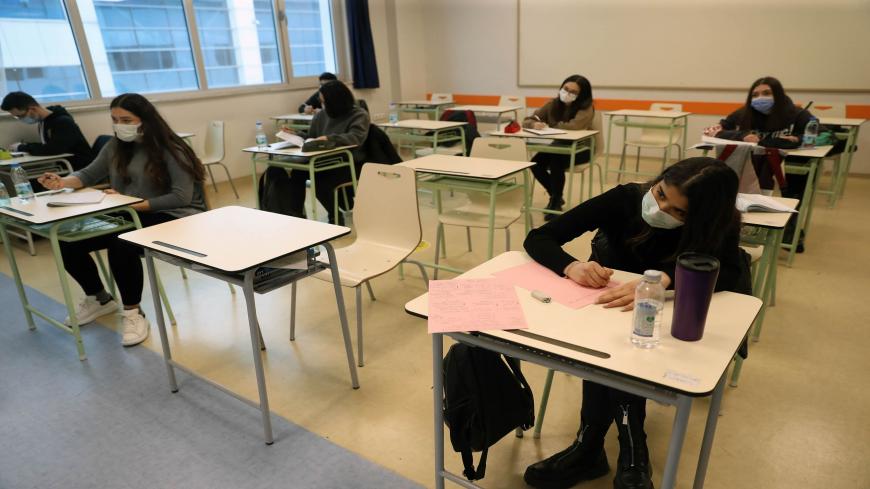Navigating Education Amidst Uncertainty: Alberta’s Delay in In-person Schooling. The COVID-19 pandemic has profoundly impacted various sectors, including education. Schools worldwide have had to adapt to the challenges brought by the pandemic, and Alberta in Canada is no exception. In response to the ongoing health crisis, the Alberta government has made the decision to delay the return to in-person K to 12 schools until January 10th.
Delay in In-person Classes
The decision to delay the return to in-person classes stems from the need to prioritize the safety and well-being of students, teachers, and the community. With the emergence of new variants and rising infection rates, it has become crucial to take preventive measures to mitigate the spread of the virus within school settings.
Importance of Safety Measures
The delay in the return to in-person classes emphasizes the significance of implementing stringent safety measures. Alberta’s government aims to create a safer environment for students by allowing more time to prepare schools with proper safety protocols. This includes measures such as enhanced cleaning, physical distancing, mandatory mask-wearing, and improved ventilation systems.
Remote Learning Strategies
During the delay, remote learning strategies will continue to be implemented to ensure that students can continue their education from home. Schools and educators have been actively working to develop effective remote learning approaches that engage students and provide quality education despite the challenges posed by the online format.
Emotional Well-being
The prolonged absence from in-person classes can have an impact on the emotional well-being of students. The Alberta government recognizes this concern and encourages schools to provide additional support for students’ mental health. This includes access to counseling services, and online resources, and promoting open communication channels between students, parents, and educators.
Challenges Faced
The decision to delay the return to in-person classes presents several challenges for students, parents, and educators. Students may face difficulties in adjusting to remote learning, especially those who rely on in-person interactions for effective learning. Parents may struggle to balance work responsibilities while supervising their children’s education at home. Educators, too, face the challenge of adapting their teaching methods to the online format while ensuring effective student engagement.
Government Support
To support education during the delay, the Alberta government has implemented various initiatives. These include providing additional funding for technology resources, professional development opportunities for educators, and resources to address the learning needs of students. The government is committed to ensuring that education remains accessible and of high quality, even during these challenging times.
Academic Catch-up Plan
Recognizing the potential learning gaps that may arise due to the delay, the Alberta government has devised an academic catch-up plan. This plan aims to address any deficiencies in learning by providing additional support, resources, and targeted interventions to help students bridge the gaps in their education. Collaboration between teachers, parents, and students will be essential in implementing this catch-up plan effectively.
Community Collaboration
The delay in returning to in-person classes requires collaboration and support from the community. Parents, local organizations, and community leaders can play a vital role in assisting students and schools during this period. Community collaborations can help ensure that students have access to resources, technology, and emotional support necessary for successful remote learning.
Parental Involvement
Parents’ involvement in their children’s education is crucial during the delay in in-person classes. Supporting and engaging with their children’s remote learning can enhance academic outcomes and overall well-being. By establishing routines, providing a conducive learning environment, and communicating regularly with teachers, parents can contribute significantly to their children’s educational success.
Teacher Support and Training
Supporting teachers during remote teaching is essential to maintain the quality of education. The Alberta government recognizes this and has provided additional resources and training opportunities for educators to enhance their remote teaching skills. By equipping teachers with the necessary tools and support, the government aims to ensure that students receive the best possible education despite the challenging circumstances.
Future Outlook
Looking ahead, the delay in returning to in-person classes raises questions about the future of education post-pandemic. The experiences gained during this period can inform and shape the future of education, emphasizing the importance of adaptable and resilient teaching practices. It is likely that certain aspects of remote learning and safety measures implemented during the pandemic will continue to influence education even after the return to in-person classes.
In conclusion, the decision to delay the return to in-person K to 12 schools in Alberta until January 10th is a proactive measure to prioritize the safety and well-being of students, teachers, and the community. It highlights the importance of safety measures, effective remote learning strategies, and support systems to address the challenges faced by students, parents, and educators. By working together and adapting to the changing circumstances, Alberta’s education system aims to ensure that students receive quality education while safeguarding their health.



